Research Science and Technology Policy
The way science and innovation activities are organized, carried out, and governed, is intrinsically linked with the practical outcomes of scientific and technological advances in the world. CSPO investigates these linkages with particular focus on the ways that different policy choices and institutional arrangements influence pathways of science and innovation, and the implications of those results for the quality of our lives. In pursuing such knowledge, we seek to reveal and understand the many sources of power and influence that impact science and innovation policy choices. CSPO also actively develops and promotes policy tools, models, and deliberations that can enhance the interaction between science and innovation policy decisions and the development of a vibrant and equitable democratic society.
-
Participatory Assessment and Governance of Climate Intervention Technologies
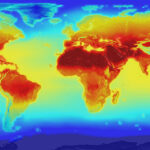
Project Background: Climate intervention technologies (CIT) include several existing, proposed, theoretical, or experimental technologies, including carbon dioxide removal and solar radiation management technologies, that aim to modify Earth’s climate systems to reduce the harms of climate change (IPCC, 2018; The…
-
Partners for Narratives
The futures narratives partners will convene a hackathon with science fiction writers, artists, experts and instructional designers to develop compelling narratives of nuclear waste futures that will inform the following phases of the project. Joey Eschrich Managing Editor, Center…
-
Partners for Evaluation
Evaluation partners will work with the project team to conduct four types of evaluation: (a) Public values evaluation, (b) Participant activities evaluation, (c) Project process evaluation, and (d) Project outcomes evaluation. The public values evaluation will specifically focus on implementation…
-
Arizona Consortium for Community Engagement, Innovation, and Learning on Consent-Based Siting (CCEIL-AZ)

Project Objectives: This two-year project seeks to build a participatory engagement framework to potentially inform a consent-based siting process for an interim facility for high-level nuclear waste. It will build a network of partner organization across Arizona, including the Arizona…
-
Carbon Dioxide Removal (CDR) Technology Public Forums and Application to Governance Frameworks

Current climate projections suggest that traditional sustainability efforts alone will not be sufficient for achieving the international community’s ambition of staying below a 2°C increase in global temperature in the coming decades; as such, utilizing drastic, novel approaches may also…
-
We, the Internet U.S. Community Forums
Dates: Saturday, October 24 & Sunday, October 25 Time: 1pm – 5pm ET / 12pm – 4pm CT / 10am – 2pm PT Location: Online via zoom Background Materials Briefing Material for Participants (short) Briefing Material for Participants (long)…
-
Partner with Us!
Are you interested in becoming a local partner for the U.S. dialogues? Please contact Mahmud Farooque as soon as possible! Recruitment is already under way for our October 24-25 forums. What is the role of the local partner? As a…
-
We the Internet: Citizen and Stakeholder Dialogues
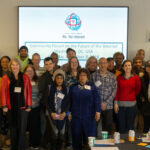
Background: For the 55% of the world’s population connected to it, the Internet has been a source of transformational change. This connection has altered almost every facet of daily life, from the ways we communicate, learn, shop, and interact to…
-
Meet the Fellows
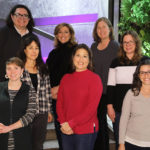
Ann Arbor, MI Jade Marks, University of Michigan Museum of Natural History Jade Marks is the Science Communication Manager for the University of Michigan Museum of Natural History. Through courses, workshops, and programming, Jade helps researchers use their stories to…
-
Public Interest Technology Community Innovation Fellowship

An immersive learning program for engaging communities in science and technology policy, education and research The Expert and Citizen Assessment of Science and Technology (ECAST) network—led by Arizona State University‘s Consortium for Science, Policy and Outcomes (CSPO), the Museum of…
-
Sulston Project: Making the Knowledge Commons for Interpreting Cancer Genomics Variants More Effective
Sulston Project: Making the Knowledge Commons for Interpreting Cancer Genomics Variants More Effective The Sulston Project is about building the knowledge commons for interpreting cancer genomic variants, the important unfinished work. We’re looking at various aspects. One aspect is whether,…
-
Forum Materials
Public technology assessments are designed as informed public deliberations. In order to promote a thoughtful, informed deliberation, participants were briefed both prior to and during the forum on the facts, issues, and areas of uncertainty related to solar radiation management.…
-
Frequently Asked Questions
CSPO’s project to explore democratic governance of geoengineering research involves a lot of terms and concepts with which many people are unfamiliar. Below are some useful definitions and frequently asked questions about this project: What is geoengineering? What is solar…
-
Exploring Democratic Governance of Solar Geoengineering Research

International efforts to address climate change have focused on reducing the amount of warming greenhouse gases emitted into the atmosphere, or mitigation. But the political and technological difficulties of achieving mitigation targets have become ever more apparent, and adapting to…
-
Workshop Announcement
Workshop Announcement A Call for Universities, Industry, and Government to: Improve Research Results and Increase Benefits to Society Through Deepening Engagement with External Partners We believe that universities can improve their research and increase their benefits to society through extending…
-
Workshop Agenda
Highly Integrated Basic and Applied Research (HIBAR) Primary Workshop Goals To find shared understanding about HIBAR: What is it? Why do we need more of it? To find possible ways to collaborate on advancing HIBAR. To express these understandings in…
-
Participant Profiles
Henry Artigues Henry Artigues serves as the Director for External Partnerships and Economic Development at Florida International University. In this role, Henry represents FIU research interests in Washington DC in an effort to solidify relationships with federal agencies and industry…
-
Draft Scoring Rubric to Evaluate HIBAR Efforts
Draft A Suggested HIBAR Scoring Rubric A scoring rubric might help assess the extent to which a research project qualifies as HIBAR. A reliable assessment tool could help universities monitor their progress in boosting HIBAR and could also help in…
-
Background Readings
Highly Integrated Basic and Applied Research (HIBAR) Venkatesh Narayanamurti and Toluwalogo Odumosu, Cycles of Invention and Discovery: Rethinking the Endless Frontier (Cambridge, MA: Harvard University Press, 2016). Daniel Sarewitz, “Saving Science,” The New Atlantis: A Journal of Technology & Society…
-
Introduction
A research leaders’ workshop to consider forming the: Highly Integrated Basic and Applied Research (HIBAR) Alliance: Seeking solutions and understanding by uniting the approaches of invention and discovery (Drafted by A. Austin, Michigan State University, C. Crittenden, University of California…
-
Highly Integrated Basic and Applied Research
Consensus Statement of the HIBAR Research Alliance A Call for Universities to Improve Research and Increase Benefits to Society Through Deepening Engagement with External Partners May 16, 2017 The HIBAR Research Alliance is a network of research leaders who believe…
-
Workshop: The Politics of Science and Innovation Policy
March 17-18, 2016 The Brookings Institution 1775 Massachusetts Ave NW, Washington, DC 20036 The primary goal of this workshop is to produce a set of interesting questions for the community of researchers and practitioners working on science and innovation policy.…
-
Summary of the Typology
Elizabeth C. McNie, Adam Parris, Dan Sarewitz Decision makers call upon and fund science to solve urgent problems, catalyze innovation, provide information that educates stakeholders, expand alternatives, clarify choices, and aid in formulating and implementing policy decisions. But linking science…
-
A Typology for Assessing the Role of Users in Scientific Research
Elizabeth C. McNie, Adam Parris, Dan Sarewitz I Overview Decision makers call upon and fund science to help clarify and resolve many types of problems (OECD 2002; America COMPETES Act 2007; Bush 1945). They expect research to create useful information…
-
User Engagement and Scientific Research
While the concept of user-inspired research—characterized by engagement between the producers and users of scientific information—is increasingly discussed by academics and science managers, it remains largely absent from science policy decision-making processes. One reason for this appears to be the…
-
A Participatory Technology Assessment of NASA’s Asteroid Initiative
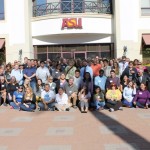
Project Description This Arizona State University-led pilot project of the Expert and Citizen Assessment of Science and Technology (ECAST) network will work collaboratively with NASA to design, test, develop, implement, analyze, and assess two on-site and one on-line citizen forums…
-
Public Value Mapping: Developing A Non-Economic Model of the Social Value of Science and Innovative Policy
PI: Daniel Sarewitz, Arizona State University Co-PI: Barry Bozeman, University of Georgia Project Summary Science and innovation policies (SIPs) aim at mobilizing knowledge in support of a wide range of societal aspirations and values. However, analytical tools and models for…
-
New Tools for Science Policy: Theory & Method
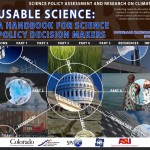
“The nascent field of the social science of science policy needs to grow up, and quickly.” – J. Marburger, Science Advisor to the President, April 2005. As incredible as it may seem, science policy has few useful theories and no…
-
New Tools for Science Policy Videos
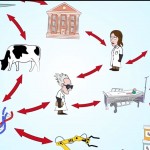
One important area of effort for CSPO focuses on developing tools that can help improve the links between scientific research programs and the societal benefits of research. We have developed brief videos that introduce two of these tools: Public Value…
-
How to STIR Public Values for Policy Making: Web-based Dissemination of Two SciSIP Projects

Project Period: 2010-2011 Project Leaders: Daniel Sarewitz, CSPO, PVM project Erik Fisher, CSPO, STIR project Overview Funded by the National Science Foundation, this project produced three informative and engaging web-based videos that will present models and techniques developed in two…
-
Energy, Ethics, Society and Policy Initiative
Began: 2008 Ended: Ongoing Clark A. Miller, EESPI director, CSPO associate director, associate professor in ASU’s School of Politics and Global Studies Full list of participants Energy, Ethics, Society and Policy Initiative (EESPI) is an interdisciplinary research community at Arizona…
-
Energy Innovation Systems From the Bottom Up: Technology Policies for Confronting Climate Change
About the project Energy Innovations Systems is a joint project of the Consortium for Science, Policy & Outcomes (CSPO) and the Clean Air Task Force (CATF), with support and cooperation from the Bipartisan Policy Center (BPC). Phase 1 began with…